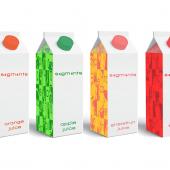UN Report endorses FPE approach to Life Cycle Assessment
 A new report, from the United Nations Environment Programme (UNEP) has benchmarked a number of Life Cycle Assessments (LCAs) undertaken by Flexible Packaging Europe (FPE), in a wide ranging, in depth, report to understand best practice in using LCA as an assessment tool for packaging.
A new report, from the United Nations Environment Programme (UNEP) has benchmarked a number of Life Cycle Assessments (LCAs) undertaken by Flexible Packaging Europe (FPE), in a wide ranging, in depth, report to understand best practice in using LCA as an assessment tool for packaging.
The report, produced under the Life Cycle Initiative - a joint organisation of UNEP and the Society of Environmental Toxicology and Chemistry (SETAC) - summarizes the results of a project designed to consolidate outcomes of existing research on the environmental performance of packaging, namely LCA studies, in order to demonstrate the value of applying LCAs to evaluate environmental impacts for food and beverage packaging.
FPE has undertaken several LCA studies to demonstrate the strong case for flexible packaging as resource efficient and sustainably viable material in all its many forms. These reports have highlighted the positive attributes such as excellent product-to-pack ratios which can be achieved, as well as the proven protective
and economic advantages derived from flexible packaging.
Stefan Glimm, the Executive Director of FPE said, “We are extremely proud of this endorsement of the LCA work FPE has undertaken over the last 5 years and that seven were considered good enough to be included as examples of best practise by the UNEP/SETAC team in this project. We strongly believe in the values of including all life cycle stages because it prevents the decision maker from inadvertently shifting the environmental burdens from one stage to another. It also ensures that potential impacts at all stages of the life cycle are accounted for.”
Using knowledge mining techniques the UNEP report showed that when conducting a life cycle assessment on food and beverage packaging it is important to consider the full cradle-to-grave impact of the packaging system in order to ensure the analysis accounts for all potential system impacts. Omitting one or more life cycle stages can potentially lead to the selection of a package design that appears to have the lowest impact, but is associated with the highest burden when the full cradle-to-grave LCA is evaluated.
A clear aim of the report was to demonstrate why a life cycle perspective, when evaluating the environmental impact of food and beverage packaging, is effective. Stefan Glimm continued, “The fact that the study conclusions are recognised and endorsed by UNEP really adds to their credibility. At FPE we will continue to use LCA to demonstrate the value that all flexible packaging delivers to help make lives more sustainable. In all our studies to date LCA has helped to show how flexible packaging is part of the solution to reduce food waste, improve sustainable lifestyles by more sustainable packaging and in realising a resource efficient society.”
The final report for the UNEP SETAC study can be downloaded here http://www.lifecycleinitiative.org/wp-content/uploads/2013/11/food_packa...
Executive summaries of the FPE LCA studies used in the knowledge mining are available here http://www.flexpack-europe.org/sustainability.html



















